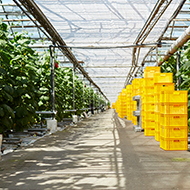
Measures designed to modernise and improve food safety standards
The UK government has announced a series of measures ‘aimed at modernising protections against animal diseases and plant pests as well as improving food safety’.
The new EU Smarter rules for safer food regulations will come into force at 11 pm on Friday, 13 December 2019.
A Defra press release reads: ‘The package will modernise, simplify and improve existing health and safety standards for the agri-food chain. It will take a risk-based approach to animal, plant and public health protection, introducing more efficient pest and disease control measures.
The new regulations are split into two areas and will affect businesses in the following industries:
- the Official Controls Regulation (OCR) applying to all UK businesses involved in trade in animals and products of animal origin (POAO)
- the Plant Health Regulation (PHR) applying to all UK businesses involved in the production, manufacture, supply and regulation of plants, seeds, timber and plant products.’
Businesses affected by these changes have already been contacted by Defra and are being urged to prepare so they can continue to operate with the import and export of these products. The changes include:
- for animal and animal by-products businesses: Using an improved IT system TRACES (NT) to log imports from beyond the EU and new look import forms.
- for plant, seed and timber businesses: A large increase in the number of plant passports required as well as changes to the content and format of plant passport applications forms for businesses.
The new rules apply to the UK while it remains a member of the European Union and during any transition period. In the event of a Brexit no-deal, the regulations will be retained by the Withdrawal Act and will continue to apply subject to any Parliamentary amendments.



 The Animal and Plant Health Agency (APHA) has updated its online reporting service for dead wild birds.
The Animal and Plant Health Agency (APHA) has updated its online reporting service for dead wild birds.